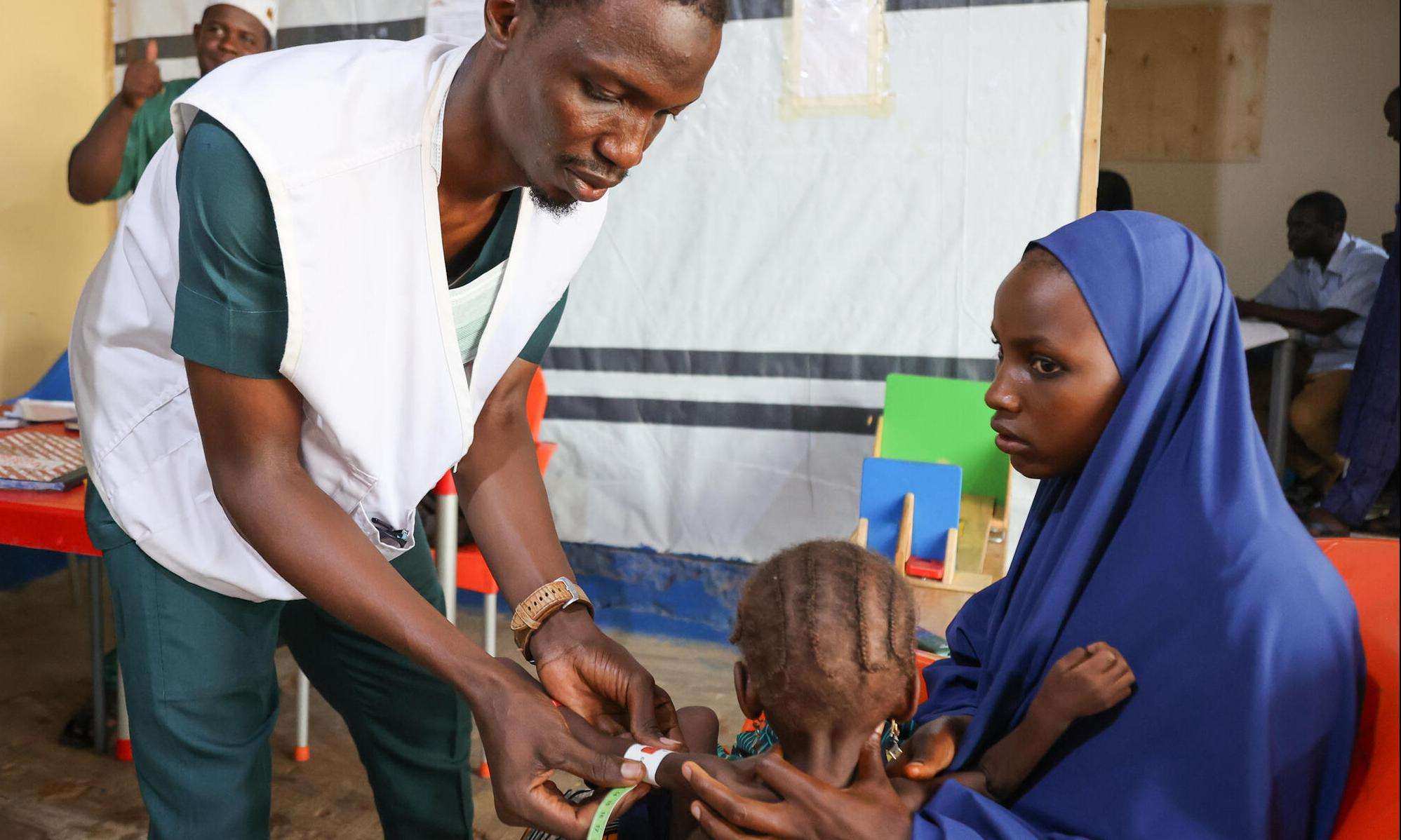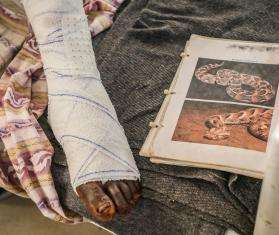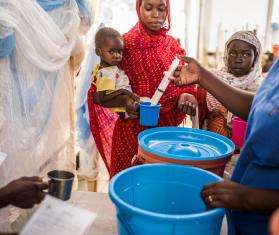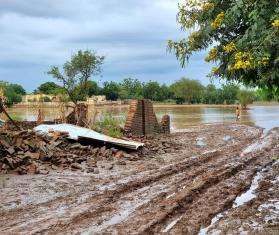NEW YORK/BAUCHI, NIGERIA, August 6, 2024—Amid an unprecedented surge in malnutrition cases in Bauchi state in northern Nigeria, Doctors Without Borders/Médecins Sans Frontières (MSF) teams are scaling up in-facility care as well as working with the community to better diagnose and treat malnutrition at early stages. Identifying cases of malnutrition in children early is critical to prevent cases from becoming more severe and reduce mortality rates.
Bauchi, along with the majority of northern Nigeria, is facing a malnutrition crisis. Across the country, MSF teams have seen rates of malnutrition admissions increase by an average of 40 percent between January and June compared to the same period last year. In Bauchi state alone, MSF facilities have seen patient admissions increase by more than 120 percent compared to the same period in 2023.
“We are very alarmed by the catastrophic increase in malnutrition admissions we have seen in Bauchi in the first half of 2024,” said Rabi Adamou, MSF project coordinator for Bauchi. “We are only just entering the peak season for malnutrition and our facilities are over capacity and having to expand.”
Between January and June 2024, more than 5,780 children were admitted to MSF’s inpatient therapeutic feeding center in Kafin Madaki General Hospital in the Ganjuwa area of Bauchi state—where MSF recently added more beds to meet the increase in patients. During the same period, more than 17,220 people were admitted to MSF’s three local outpatient therapeutic feeding centers in Bauchi located in Kafin Madaki, Kafin Liman, and Miya primary health care centers. Outpatient therapeutic feeding centers support malnourished children before they need to be admitted to an inpatient hospital. MSF has been responding to the malnutrition situation in Bauchi since 2022.
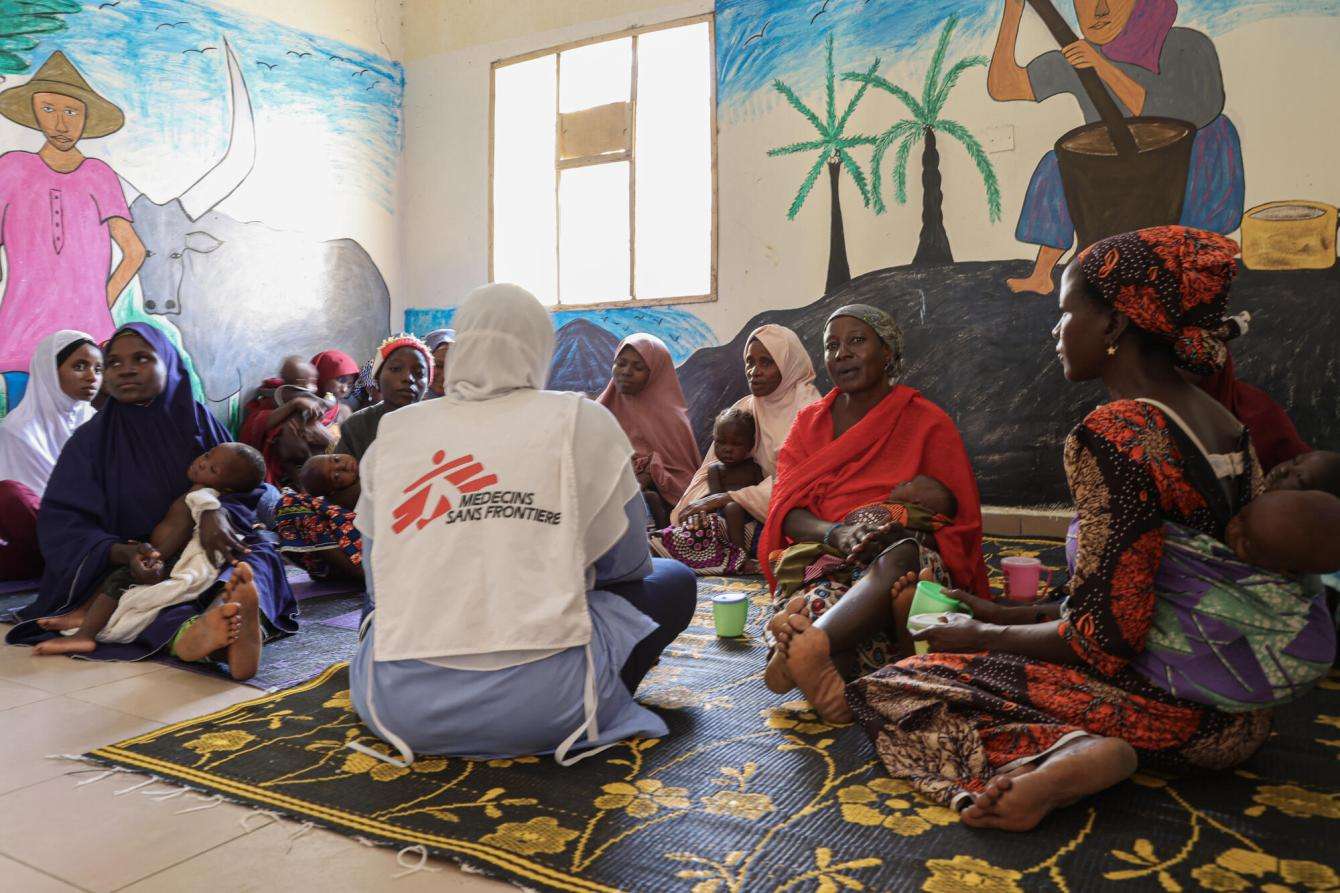
In addition to this facility-based care, MSF has begun employing and planning new community-based activities. In mid-July, for example, MSF launched a pilot program in eight villages in Miya that added malnutrition treatment to the conventional integrated community case management activities, which previously only included malaria and diarrhea diagnosis and treatment.
“Given the multifaceted causes of malnutrition, it is imperative the response is equally comprehensive and spans multiple sectors,” said Nathalie Avril, MSF nutrition advisor. “This includes not only treatment but also preventative measures. Recognizing the geographically widespread nature of people’s needs, the response must mirror this extent, ensuring a broad and multidisciplinary approach to help offer children this care.”
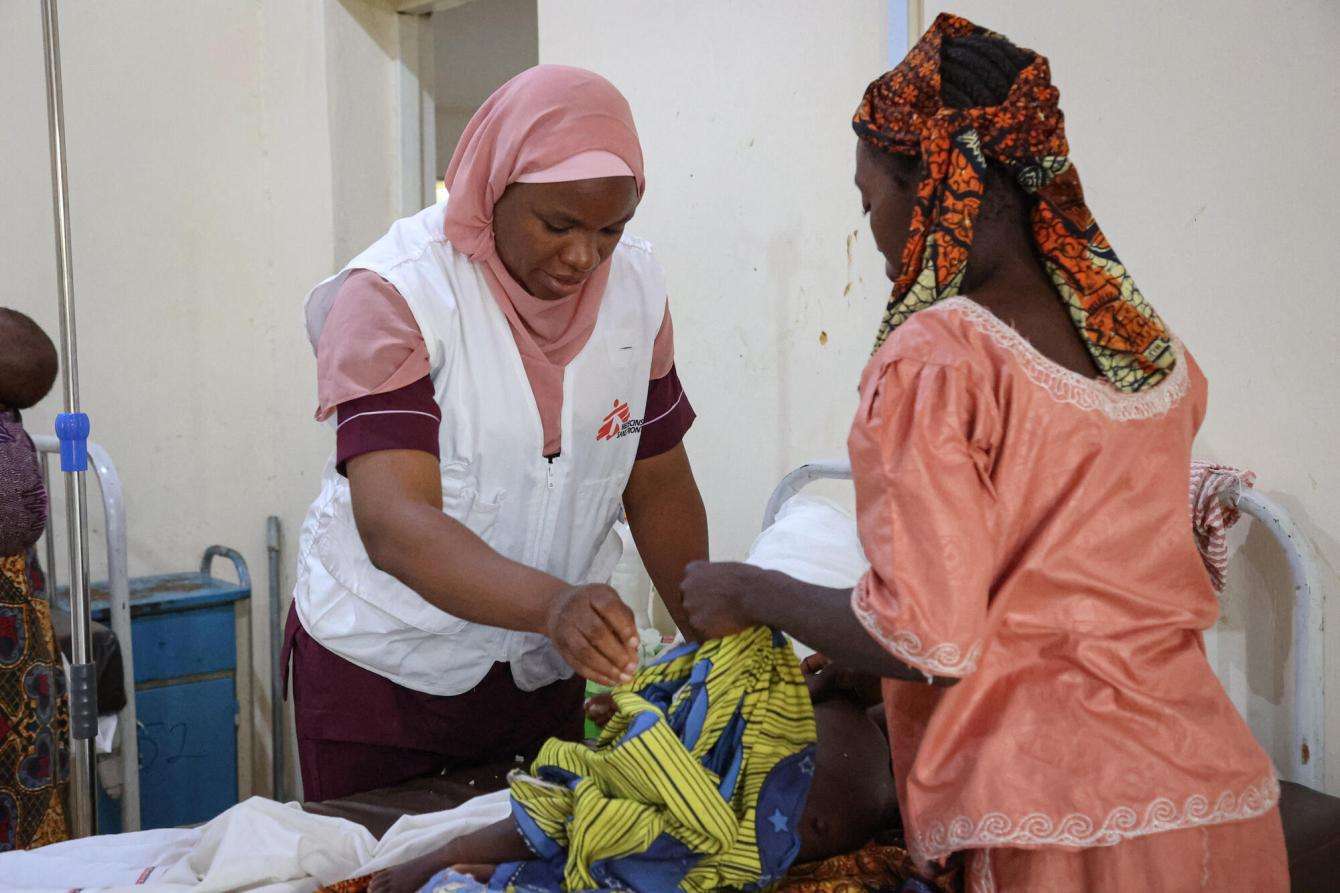
Mid-upper arm circumference as a diagnostic tool
Measuring a child’s mid-upper arm circumference (MUAC) is a simple way to determine if and to what extent a child is malnourished. In Bauchi, our “parent MUAC” activity trains parents and caretakers to measure children’s MUAC at home—to monitor and detect malnutrition in children at early stage—before it develops into severe cases.
“Despite the collective efforts, many challenges remain—like limited access to health care, the lack of qualified medical staff in health facilities, provisions of medications, and ready-to-use therapeutic foods—all of which are essential to treat children with malnutrition,” Adamou said. “It is crucial that Bauchi state representatives as well as national and international stakeholders work together and expand the response to help deliver this critical care to children and families and prevent further increase in malnutrition numbers in the years to come.”
Our work in Nigeria
MSF has been supporting the local health system in Bauchi since 2012 by responding to outbreaks of diseases such as cholera, diphtheria, and Lassa fever, as well as providing health care, training medical staff, and conducting health promotion activities in communities.
